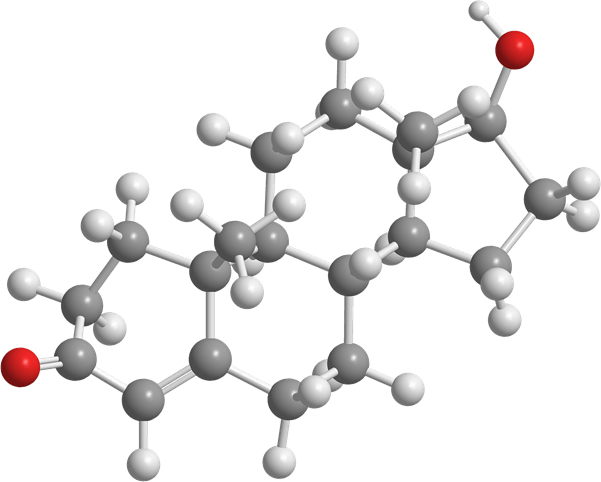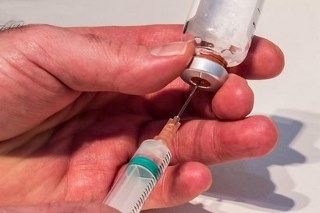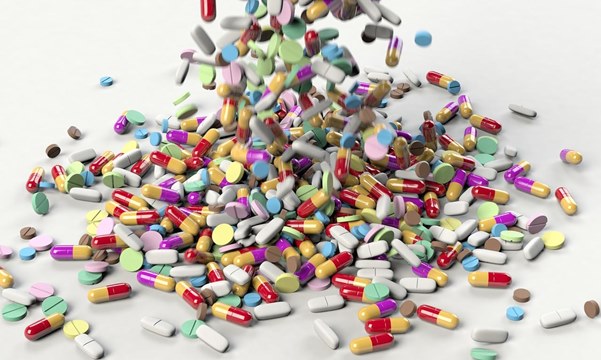Testosterone Cypionate is a synthetic derivative of testosterone administered in the form of an injection. Testosterone is a primary male sex hormone that has both androgenic and anabolic effects.
The drug is derived from the hormone testosterone and belongs to the class of drugs known as androgens. It is administered via intramuscular injection weekly in 200 to 2000 mg doses.
Because it stays in the body for a long time, Testosterone Cypionate can cause more water retention and aromatize at a higher rate.
Unlike some other formulations of testosterone, such as propionate, Testosterone Cypionate has a longer half-life. This means that Testosterone Cypionate does not have to be injected nearly as frequently as other testosterone esters for the same results. In addition, the compound is slowly released from the injection site into the bloodstream, allowing easier administration and lower dosage usage.
Testosterone Cypionate is considered the most popular ester form of testosterone available today. Propionate is the second most popular. Users who prefer this product specifically often cite ease of use and lower cost among their reasons for using it over other forms of testosterone. You can find testosterone cypionate Canada at your neighborhood pharmacy and online.
How Does Testosterone Cypionate work?
This medication is given via injection as directed by a healthcare provider, usually every 1 to 4 weeks. Do not inject this medication into your vein. Dosage is based on your testosterone blood levels, medical condition, and response to treatment.
Do not increase your dose or use this drug more often than prescribed because your risk of side effects will increase. Testosterone treatment may accelerate children’s bone maturation, permitting linear growth in boys with retarded growth. This drug may also affect puberty in boys.
Testosterone treatments are used to treat adult men who have low or no testosterone due to certain medical conditions. In boys, they are also used to cause puberty in those with delayed puberty.
Testosterone cypionate replaces the testosterone your body can’t synthesize. It treats hypogonadism in males.
Do not use testosterone to enhance athletic performance or to treat men with low testosterone levels who have no medical symptoms.
Testosterone Cypionate Uses
Testosterone cypionate is delivered via intramuscular injection. It is a long-acting ester, most commonly used by bodybuilders and athletes. The benefits of this drug are numerous and include:
- Reduced risk of heart disease
- Increased energy levels
- Improved cognitive function
- Improved sexual function and libido
- Reduced risk of osteoporosis and improved bone density
- Improved mood
In addition to these benefits, testosterone cypionate can also enhance athletic performance, increase muscle mass and strength, lose body fat, improve sleep quality, and much more.
Testosterone Cypionate Benefits
Testosterone Cypionate can promote protein synthesis. The process of protein synthesis takes place when cells build proteins. These proteins are essential as they repair damaged muscle and are also what causes new muscle growth.
Testosterone Cypionate can increase nitrogen retention in the muscles. Muscle tissue comprises approximately 16% nitrogen, and an increase in nitrogen retention will promote a positive nitrogen balance. This leads to an anabolic state if the goal is to build more muscle.
Testosterone Cypionate can decrease cortisol levels in the body. Cortisol is a hormone released by your adrenal glands, and it can lead to muscle loss and fat gain. If you’re able to control or limit cortisol levels, it will lead to greater gains in lean muscle mass, but it will also help you burn more fat when combined with a proper diet and exercise program.
Testosterone Cypionate Side Effect
The side effects can be divided into the ones related to its androgenic nature and others related to its anabolic nature.
Androgenic side effects of Testosterone Cypionate
Like most other steroids, Testosterone Cypionate is also an androgen, and it does cause virilization. This means that women who use Testosterone Cypionate may develop male traits such as deep voice, excess body hair on the face or body, enlarged clitoris, and even shrunk breasts. In addition, men who use Testosterone Cypionate can develop acne, oily skin, male pattern baldness, shrinking testicles, and gynecomastia.
Anabolic side effects of Testosterone Cypionate
Men who use Testosterone Cypionate can develop acne, oily skin, male pattern baldness, shrinking testicles, and gynecomastia or breast enlargement. Some men may even grow extra body hair because of increased testosterone levels.
Women who use Testosterone Cypionate may develop masculine characteristics such as facial hair growth, deepening of the voice, and clitoral enlargement. Testosterone Cypionate also causes prolonged sexual arousal in women who use it.
Testosterone cypionate interaction with other medications
Some medications can interact with Testosterone Cypionate, including certain blood pressure or heart medications and some antibiotics. Therefore, tell your doctor about all other medications you are taking before receiving Testosterone Cypionate.
Blood Pressure Medications
Testosterone Cypionate may interact with certain blood pressure medications. It can also increase fluid retention, which also may affect blood pressure. Talk to your doctor about your meds before getting Testosterone Cypionate injections.
Antibiotics
Some antibiotics may increase the breakdown of Testosterone Cypionate by the liver, decreasing the amount of testosterone in your body. These include some antibiotics used to treat tuberculosis, such as Rifabutin and Rifampin, and antifungal agents such as Griseofulvin and Ketoconazole. Tell your doctor if you are on any antibiotics before getting Testosterone Cypionate injections.
Antifungal Medications
Testosterone Cypionate may interact with antifungals, including itraconazole (Sporanox), ketoconazole (Nizoral), and fluconazole (Diflucan), which are used to treat fungal infections. Therefore, before starting treatment with these medications, tell your doctor if you take Testosterone Cypionate.
HIV or AIDS Medications
Testosterone Cypionate may interact with protease inhibitors such as atazanavir (Reyataz), fosamprenavir (Lexiva), darunavir (Prezista), lopinavir (in Kaletra), indinavir (Crixivan), saquinavir (Invirase, in Fortovase), ritonavir (Norvir, in Kaletra), nelfinavir (Viracept), and tipranavir (Aptivus) which are used to treat HIV or AIDS.
Interactions include increased risk of bleeding and liver toxicity, decreased effectiveness of the HIV medication, and increased testosterone levels. You should not use Testosterone Cypionate if you are on any of these medications or other drugs that contain testosterone. If you take a protease inhibitor, your doctor may want to monitor your blood levels closely.
Conclusion
Testosterone therapy is generally a safe, effective way to treat low testosterone and the symptoms that go along with it. However, some risks are involved with taking this type of medication, from minor side effects to severe complications. If you’re thinking of taking testosterone cypionate, talk to your doctor about the risks. What adverse reactions you might experience, and how long you can safely take the medication. They are trained to help you determine if this is the right medication for you and what dosage you should start.
References
https://www.urologyhealth.org/urology-a-z/l/low-testosterone
https://pubchem.ncbi.nlm.nih.gov/compound/Testosterone-propionate
https://www.ncbi.nlm.nih.gov/pmc/articles/PMC6517215/
https://my.clevelandclinic.org/health/diseases/15216-low-sex-drive-hypogonadism
https://pubmed.ncbi.nlm.nih.gov/2917954/
https://pubmed.ncbi.nlm.nih.gov/8855787/
https://www.ncbi.nlm.nih.gov/pmc/articles/PMC1470424/






 UPDATED FEBRUARY 26TH, 2026
UPDATED FEBRUARY 26TH, 2026